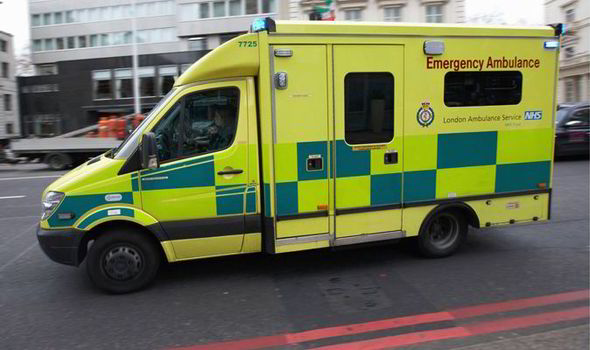
 by Bernie English
by Bernie English
SHORT STAFFING in Limerick’s ambulance service has left crew members spending their 12-hour shifts watching television while private ambulance operators are paid €400 to bring patients on a forty minute journey.
One of the ambulance crew members told the Limerick Post that they have been short four crew members out of a small contingent of just 14 people for almost a year. They are now losing two more people who are being taken off the duty roster to train members of the service in other parts of the country.
“We are supposed to have two crews at weekends and we often have just one. Every ambulance has to be crewed by two people but when there isn’t a second person, the first crew member can end up at base watching television for twelve hours. Watching television is not what we want to do. We want to do our job.
“Meanwhile, the hospital is calling out private ambulances. If someone has private health insurance, that might cover the cost. Otherwise it’s coming out of the service budget and that’s money that could go a long way to paying for an extra nurse”.
The source said that one patient who was transported from the University Hospital Limerick to Ennis Hospital by private ambulance got a bill through her insurance for €400.
“And that’s for a thirty to forty minute trip”.
Known as the intermediate ambulance service, the most common duties are transporting patients to and from hospitals to nursing homes or between hospitals in the MId West, which covers an area from Tipperary to the furthest reaches of county Clare.
“What really slapped me in the face was when I walked into the emergency department in Limerick recently and there was an old woman on a trolley. If she hadn’t had a nappy on, then everything about her would have been exposed to the world. If we were properly staffed, we could have got her out of that situation but we’re not able to provide the service”.
The source said that between May and October of last year, four people left to train in other areas or to move location. Two more people – one from the frontline paramedic service and one from the intermediate service – are also being taken out of the equation to train others, although each area already has dedicated training officers.
“They’ve offered us overtime to fill the gaps in the roster but we’re being left in Limbo. Overtime money is all very well but you could be working four 12-hour shifts in a week. It’s hard to say no to a fifth but that’s not the answer”.
Responding to the Limerick Post story, the National Ambulance (NAS) said in a statement: “The (NAS) are responsible for providing pre-hospital emergency care as well as providing transport services between acute hospitals and other medical care facilitates.
“In order to reduce its reliance on the use of emergency ambulances in these instances, and to ensure emergency ambulances were available to respond to emergency situations when they arose, the NAS introduced an Intermediate Care transport Service (ICS).
“This service is available to hospitals and is dependant on activity/resource levels. The NAS currently has vacancies and have just completed a national and international recruitment campaign for qualified paramedics.
“A number of ICS staff have availed of NAS’s training and upskilling programs which have impacted on roster coverage. A recruitment and training campaign for ICV staff is expected to have additional staff operational by the end of March and thus fill ICS vacancies which have arisen. Staff have been requested to cover the roster vacancies as an interim measure. The NAS cannot comment on the use of private ambulances by hospitals.









